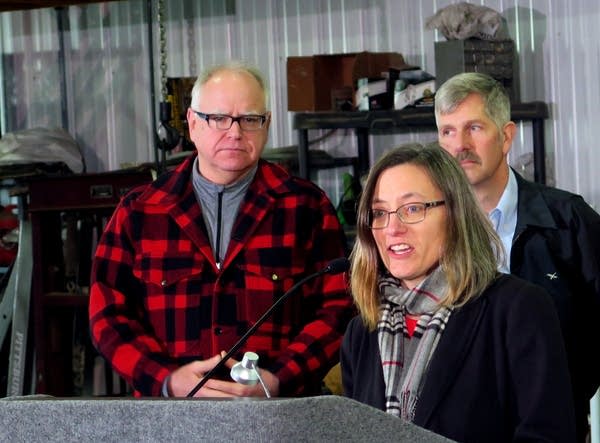New environment commissioners talk climate change, water quality

Newly announced DNR commissioner Sarah Strommen offers remarks after Gov.-elect Tim Walz announces her appointment on Thursday, Jan. 3, 2019, in Hastings, Minn.
Elizabeth Dunbar | MPR News
Go Deeper.
Create an account or log in to save stories.
Like this?
Thanks for liking this story! We have added it to a list of your favorite stories.


